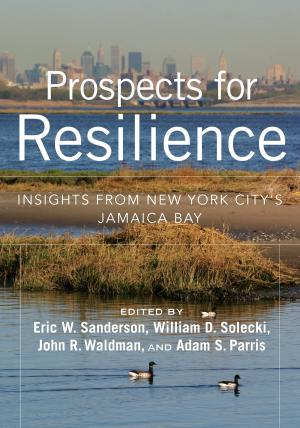Vital Signs Volume 21
The Trends That Are Shaping Our Future
Nonfiction, Science & Nature, Science, Biological Sciences, Environmental Science, Nature, Environment, Environmental Conservation & Protection| Author: | The Worldwatch Institute | ISBN: | 9781610915403 |
| Publisher: | Island Press | Publication: | September 16, 2014 |
| Imprint: | Island Press | Language: | English |
| Author: | The Worldwatch Institute |
| ISBN: | 9781610915403 |
| Publisher: | Island Press |
| Publication: | September 16, 2014 |
| Imprint: | Island Press |
| Language: | English |
Vital Signs Volume 21 is all about growth. From natural disasters to cars to organic farming, the two dozen trends examined here indicate both increasing pressure on natural resources and scaled up efforts to live more sustainably. In 2012, world auto production set yet another record with passenger-car production rising to 66.7 million. That same year, the number of natural disasters climbed to 905, roughly one hundred more than the 10-year annual average, and 90 percwere weather related. Alongside these mounting pressures come investments in renewable energy and sustainable agriculture. The number of acres of land farmed organically has tripled since 1999, though it still makes up less than 1% of total farmland. Not all the statistics are going up. Key measures of developmaid have fallen, as have global commodity prices. Yet the overall trend is expansion, both for the good and ill of the planet. Vital Signs provides the latest data available, but its value goes beyond simple numbers. Through insightful analysis of global trends, it offers a starting point for those seeking solutions to the future’s intensifying challenges.
Vital Signs Volume 21 is all about growth. From natural disasters to cars to organic farming, the two dozen trends examined here indicate both increasing pressure on natural resources and scaled up efforts to live more sustainably. In 2012, world auto production set yet another record with passenger-car production rising to 66.7 million. That same year, the number of natural disasters climbed to 905, roughly one hundred more than the 10-year annual average, and 90 percwere weather related. Alongside these mounting pressures come investments in renewable energy and sustainable agriculture. The number of acres of land farmed organically has tripled since 1999, though it still makes up less than 1% of total farmland. Not all the statistics are going up. Key measures of developmaid have fallen, as have global commodity prices. Yet the overall trend is expansion, both for the good and ill of the planet. Vital Signs provides the latest data available, but its value goes beyond simple numbers. Through insightful analysis of global trends, it offers a starting point for those seeking solutions to the future’s intensifying challenges.















